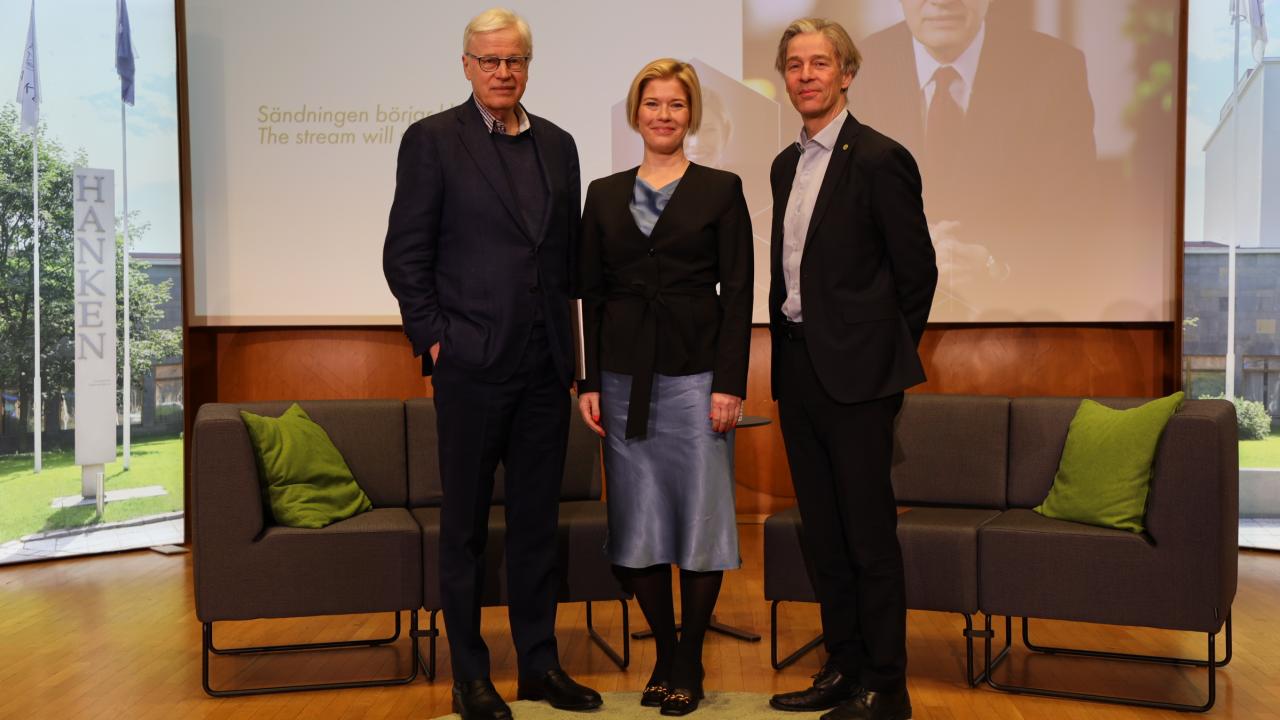Professor Bengt Holmström: The EU has to recognize the massive value of data

The opportunities in the digital world of finance are enabled by for example mobile internet, sensors, big data, AI and machine learning, cloud computing and blockchain. According to professor Holmström, China, the US and the EU have taken different approaches to utilizing the technologies.
“China is the clear leader in the tremendous development of digitalization and finance. The country has leapfrogged over many stages of development.”
China has moved fast from a cash economy with no bank access for large part of the population and almost no fixed internet connections to mobile banking. The drive to get there was big and it has created enormous value for the people, who are now included in the society on a whole other level.
Professor Holmström states that payment systems are in the core of banking today. Lending and other operations are small in comparison. Compared to China, the US digital payment systems are developing slowly.
“Consumers still use cash and checks in the US, because they are sufficiently good. Credit and debit cards are also widely used despite high costs.”
Lack of top platform companies in the EU
Professor Holmström says there is massive value in data and points out the lack of European platform businesses among the top companies in the world.
“12 of the world’s biggest companies are platform businesses, like Google, Apple and Amazon, collecting enormous amounts of data. Europe doesn’t have a single platform business among the top 20.”
According to Professor Holmström this is due to the EU having regulation as a first approach.
“The EU has developed a string of directives and acts to restrict the use of data in Europe. There is clearly a tension between the tremendous potential of data use versus the risks of data abuse.”
Professor Holmström raises the question how the EU is advancing its own presence via regulations: how is it making money?
“The trillion dollar questions is: how to monetize the enormous potential of data for the benefit of society at large.”
Information is the new collateral
Professor Holmström also talks about the logic of traditional banking systems and financial crises.
“Debt is the problem of all financial crises. It all comes down to short-term debt so why don´t we just get rid of it? Because it´s cheap funding in terms of information. You only need to find out the value of a defaulted loan. It´s like a pawn shop, we don´t have to agree on the price of the pawn, we can just agree on the fact that it´s a contract.”
Professor Holmström emphasizes that the system is 2000 years old.
“Collateralized lending – or pawn shop-like lending – is the oldest form of funding. It has to be a brilliant idea with that kind of long-term sustain. There are never any crises, if it isn’t a brilliant system.”
Professor Holmström says that information is the new collateral, like for instance on the Chinese fintech platform Ant Financial. Credit is given based on data from the platform, no application or additional information is needed. The costs are dramatically lower, both in terms of interest and default rates.
“It´s like a better and cheaper version of a credit card. Credit is offered for example based on your behavior and how liked you are. George Orwell would have liked this system, by the way.”
Nobel laureate in economics and Hanken Foundation Distinguished Fellow Professor Emeritus Bengt Holmström spoke about the future of finance at Hanken School of Economics 30 March 2023. Professor Holmström was also interviewed on stage by Hankenalumni and Global Head of Research at Danske Bank, Heidi Schauman.
Text: Jessica Gustafsson
In the picture: Professor Bengt Holmström, Global Head of Research at Danske Bank Heidi Schauman and Hanken’s Rector Ingmar Björkman

